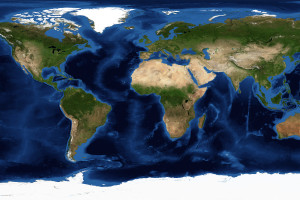Gorbachev Foundation: Russia, West reach dangerous line of confrontation

(Interfax – May 28, 2015)
Russia can return to a sustainable development path provided that it revives democratic institutes and political competition and rids of excessive centralization of power and dangerous confrontation with the West, says a report on perestroika values in the contemporary Russian context.
The document drawn up by the Gorbachev Foundation and the Civil Initiatives Committee will be presented in Moscow on May 28, on the occasion of the 30th anniversary of the beginning of democratic reforms in the USSR.
The report starts with the refutation of a widespread opinion that transformations in the former Soviet Union were triggered by the West. Perestroika was not something implanted from the outside, it matured in Soviet society, the report said. In the opinion of its authors, a major prerequisite of the reforms was the rethinking of the function of power, which is bound to be a way rather than a sacred goal.
The Soviet leadership abandoned the struggle for world leadership in its foreign policy which looked like surrender of the ground won in a previous period, the report said. However, it was a brand new, truly modern, realistic and rational policy from the point of view of human values rather than a geopolitical and military victory won at any cost, it noted.
The report compared the transformations of the late 1980s – early 1990s to the February 1917 Revolution as they were a far-reaching attempt to put the country on a new development path and do away with ‘the path dependence’.
A keynote achievement of perestroika was institutionalization of elections as a democratic value and an instrument of forming and replacing the administration through a free expression of will by citizens, the report said.
Yet the report admitted that perestroika was an unfinished revolution. It mentioned amongst causes of unsuccessful transformations, the civil conflict of 1993, the war in Chechnya which started a year later, and the outrage of criminals. Citizens became disappointed in the economic reforms after the August 1998 default. Those factors enhanced the public demand for going back to an authoritative state which brings order to the country with an iron hand, the report said.
In the opinion of its authors, the subsequent period witnessed the restoration of elements of the Soviet political system in Russia.
After chief law enforcers and bureaucrats took control of the oligarchs in the first half of the 2000s, the afterlife of old semi-dismantled Soviet political institutes began. A lid was put on the reforms, as stability, which implied control exercised by the authorities and assets concentrated in the hands of the new ruling class, became a primary objective, the report said.
The authors concluded that the reform laid a foundation for market economy and statehood in Russia but failed to bring lasting positive results and put the country on a track of modern and democratic development.
Democracy institutes were discredited in the eyes of a substantial part of the population and a one-sided and uncompetitive resource-focused model hindering economic development was formed, the report said.
In their opinion, the country built ‘power vertical’ with an utmost degree of centralization of state resources and managerial functions. Political competition in the country was practically liquidated and most significant media outlets were taken under control by the state, they said.
What is more, Russia and the West have reached a dangerous limit of confrontation, which is fraught with a new Cold War and escalation of international conflicts, the report said.
The authors warned that preservation of the ongoing trends would result in a chronic lag of Russia in the globalization epoch.
Any attempt to ignore norms, institutes and procedures based on democratic values will eventually lead to profound destabilization of the system, the report underscored.
The authors proposed to restore perestroika values and the democratic alternative the country had lost.
A new stage of profound democratic reforms is unavoidable, the authors said, adding that the reforms would be prompted by the same reasons as perestroika: the inefficient and obsolete political system, the economic and technological backwardness, the archaic methods of interaction between the state and the public, and the dangerous level of foreign political confrontation.
They dubbed free elections, federalism, a law-governed state, social democracy and self-organization of society as perestroika political ideas most topical at the moment.
The authors admitted that perestroika suffered a political defeat but stressed that its main victory was the fall of the Iron Curtain, the end of the Cold War, and the establishment of democratic values on a substantial part of the territory of the USSR and Central and Eastern Europe.
